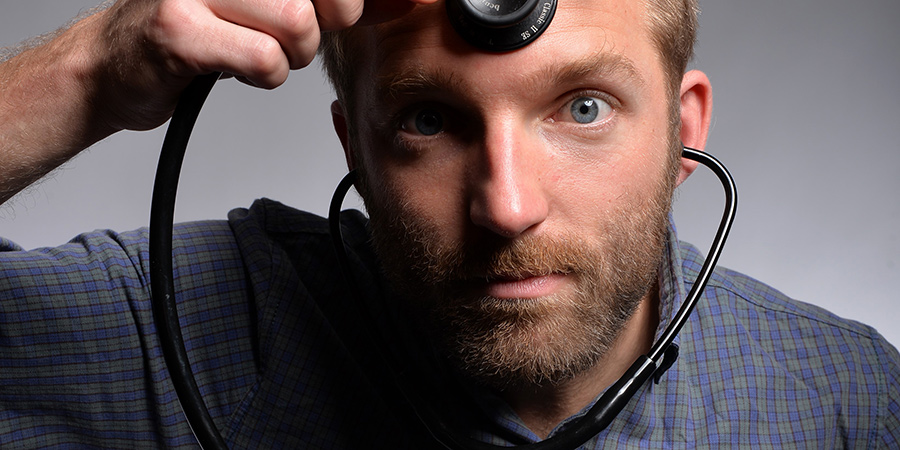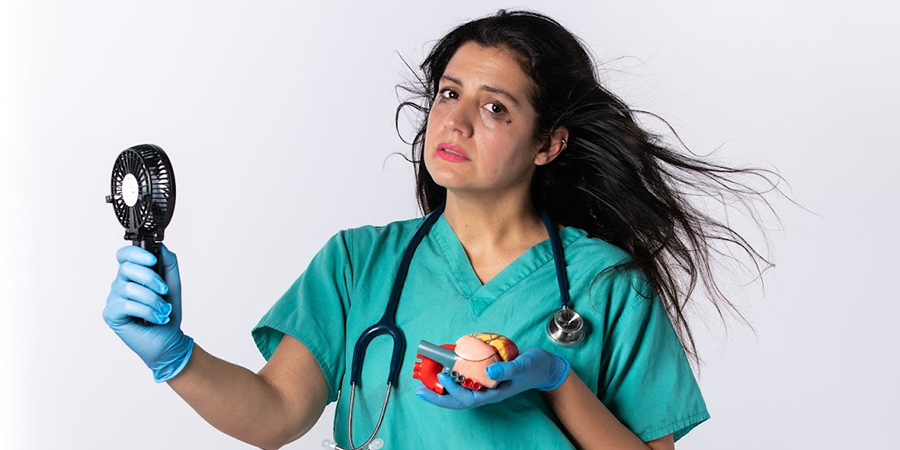Careering into Comedy

Comedy is often passed over when people talk about 'culture'. That term still tends to refer to Booker-nominated novels, or proper theatre, classical music, grand opera, serious poetry, and other not-quite-so-fun things.
But one wonderful thing about comedy - and stand-up in particular - is that anyone can do it. Some of the biggest stars in the country didn't devote themselves to stand-up until relatively late in life, and there are still successful comics who hold down other jobs, too.
It's a little different in other industries, where more technical knowhow is needed. If you're a budding movie director then film production apprenticeships make sense; posh singing requires proper training for your pipes, and you wouldn't want to pitch up at a piano recital without taking loads of classes first. But stand-up? There are loads of stories of people turning up, winging it, and getting away with it.
Often your previous job can provide handy transferable skills. A lot of teachers have turned to stand-up, and done fantastically well, which makes sense: a roomful of drunks is arguably less intimidating than a room full of bored teenagers. Hence Greg Davies, Romesh Ranganathan, Shazia Mirza, Guz Khan and co flourished, from classroom to stage to successful TV careers too.
That lack of fear is probably why so many doctors also made the move into stand-up. Harry Hill, Paul Sinha, Simon Brodkin, Phil Hammond, Michael Akadiri, Stefania Licari - and Adam Kay, of course, who has turned his old doctor diaries into live comedy, a hugely successful book, and now a popular prime-time TV series, starring Ben Whishaw. Ed Patrick and Benji Waterstones have also turned their medical careers into books - as an anaesthetist and NHS psychiatrist, respectively.

Outside experience helps in comedy, whether or not you're talking about the old job onstage, and you needn't be a fresh-faced twenty-something to make it big. As a high-flying TV executive Cally Beaton entered comedy quite organically, having worked with comedians and introduced them at events. It was compering, essentially.
Rhod Gilbert was about to become managing director of a market research comedy, before realising that comedy was his raison d'etre. And Ed Aczel is also a marketing specialist who turned to comedy later in life - although as a purveyor of 'anti comedy', he kept the day-job going too.
Getting to give up the normal job and do comedy full-time was always the dream for budding stand-ups, the moment you felt like a proper, professional comic. But the lockdowns have changed that landscape in recent years.
As the live scene completely closed down in 2020, plenty of pretty successful acts went back into the regular workplace - taking jobs in supermarkets, in reopened bars, in offices. And a good few of them have quietly carried on with the new day jobs, post-lockdowns, as energy prices make travelling the country trickier too.
Now, it's completely normal to be a professional comedian while holding down another job. Apart from the regular income, it's a whole extra world of experience - so just think of all that new-material potential. A nine-to-five on the side makes a whole lot of sense.
